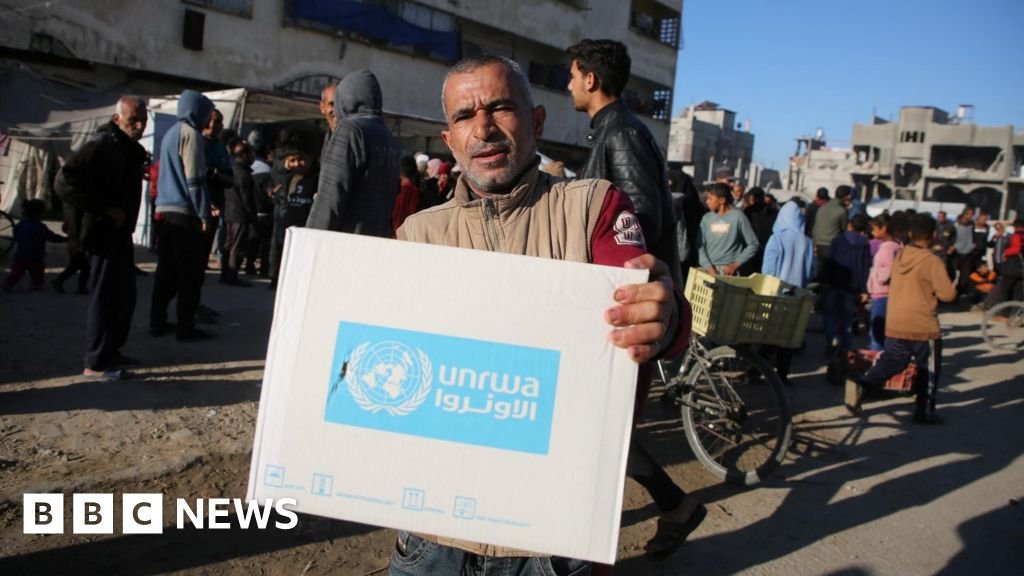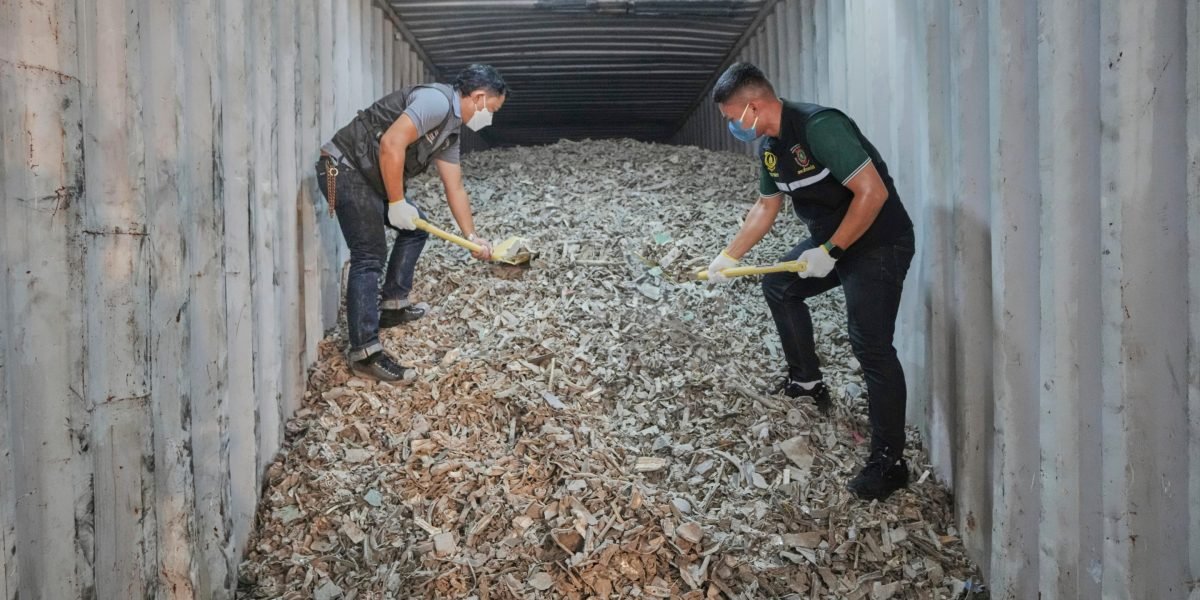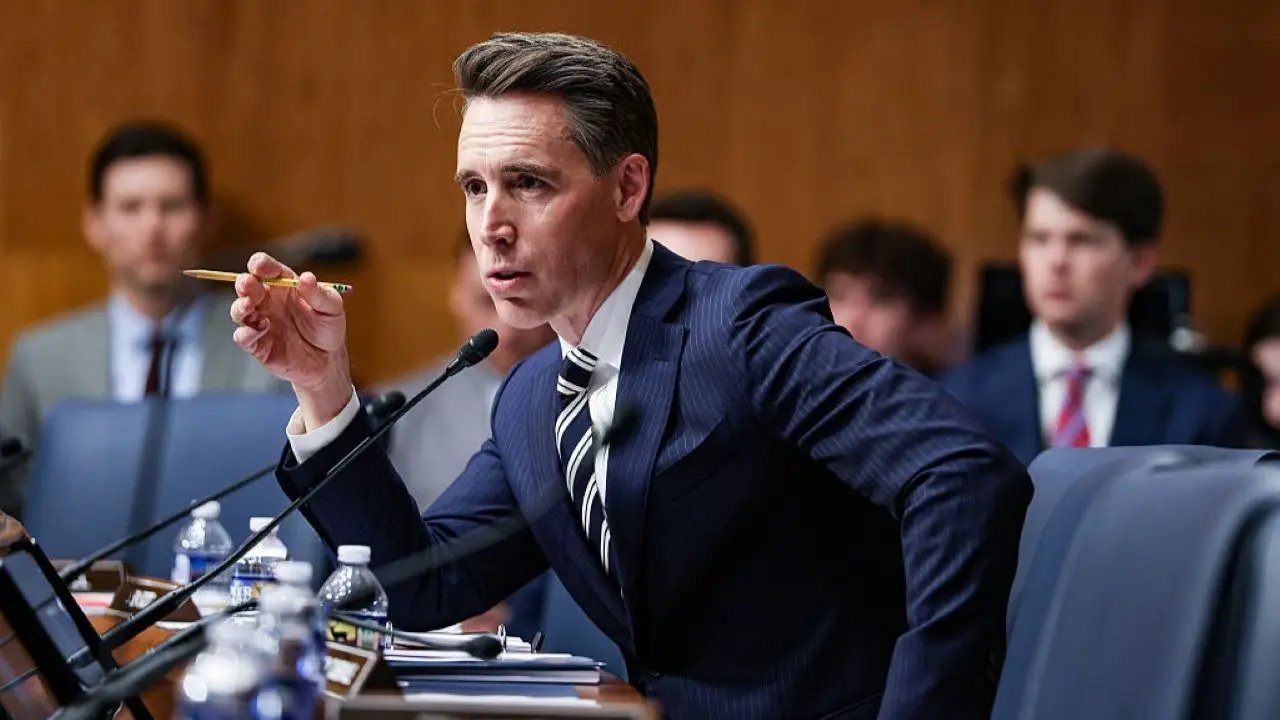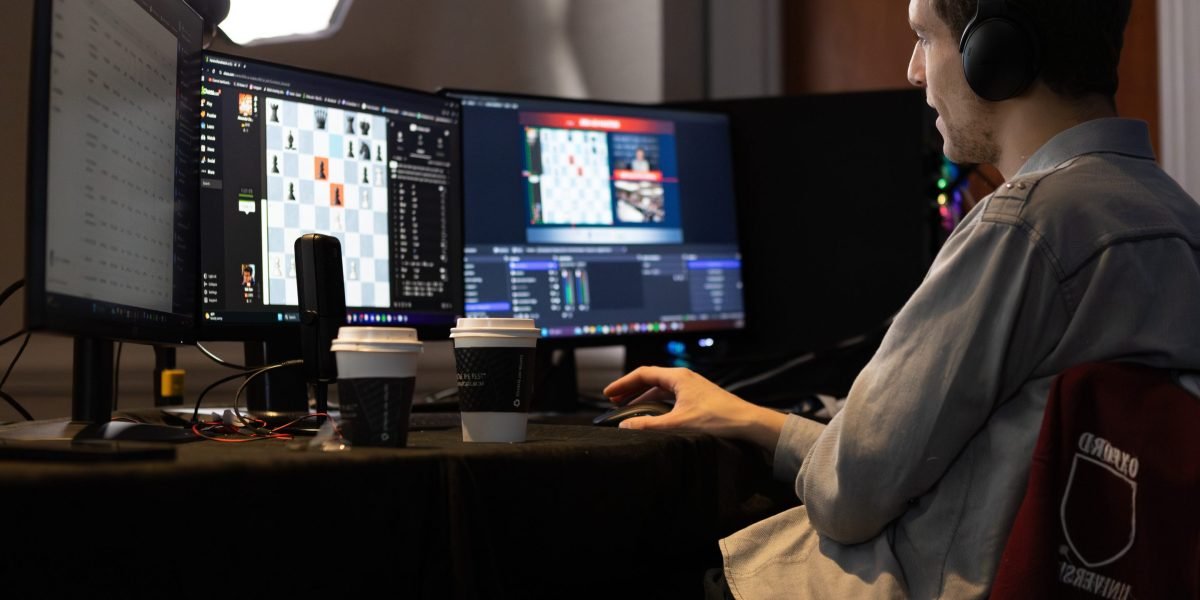
The ICJ will rule on Israel’s UN and Palestinian aid obligations
The International Court of Justice (ICJ) is set to issue an advisory opinion on Israel’s legal obligations to UN agencies and other international organizations operating in the occupied West Bank and Gaza Strip.
The UN’s Supreme Court received a request from the General Assembly late last year, after Israel’s parliament passed laws banning any activities of the UN agency for Palestinian refugees on Israeli territory (UNRA) and any contact with Israeli authorities.
Israel has accused Hamas of infiltrating Unrwa. The agency denied the claim, insisting it was impartial.
The ICJ was also asked to cover Israel’s obligation to allow unimpeded distribution of essential goods to the Palestinians.
Israel tightened its blockade of Gaza after it started war with Hamas two years ago, and has since cut off access to food and other aid for its 2.1 million population – and at times completely.
Ahead of this month’s ceasefire agreement, UN-backed global experts estimated that more than 640,000 people were facing catastrophic levels of food insecurity and that Gaza City was in a “completely man-made” famine. Israel rejected the findings, insisting it was providing enough food. Hamas is also accused of stealing aid.
The ICJ’s panel of international judges was asked to clarify two questions in a resolution passed by the UN General Assembly in December.
First, whether Israel’s ban on Unrva violates UN norms guaranteeing the independence of UN agencies.
and secondly, whether Israel’s restriction on aid crossings into Gaza violates international humanitarian law, including its obligations as an occupying power to protect civilians.
Although the opinion is a non-binding legal interpretation, it carries significant moral and diplomatic weight.
The ICJ’s panel of international judges was asked to clarify two questions in a resolution passed by the UN General Assembly in December.
First, whether Israel’s ban on Unrva violates UN norms guaranteeing the independence of UN agencies.
and secondly, whether Israel’s restriction on aid crossings into Gaza violates international humanitarian law, including its obligations as an occupying power to protect civilians.
Although the opinion is a non-binding legal interpretation, it carries significant moral and diplomatic weight.
At the start of the hearing in The Hague in April, UN Under-Secretary-General for Legal Affairs Elinor Hammarskjöld told the court that, as the occupying power in the West Bank and Gaza, Israel’s obligations include “allowing and facilitating the activities of all relevant UN agencies for the benefit of the local population”.
These activities included provision of food items, as well as assistance schemes such as caring for and educating children and maintaining medical services, she said.
She also argued that as a UN member state, Israel has legal obligations under the UN Convention to preserve the privileges and immunities of the UN and its premises, property, assets and personnel so that it can function properly and fulfill its mandate.
“When basic elements of this legal framework are not observed, the very nature of the organization’s work on behalf of its member states is threatened,” she warned.
The Palestinian government’s legal adviser, Bliny Ni Ghrale, said Israel’s “violation of the fundamental rights of the Palestinian people, its attacks on the United Nations and its officials, property and premises, its deliberate obstruction of the work of the organization and its attempts to destroy the entire United Nations or its subsidiary bodies”.
Israel considers the ICJ proceedings a “political circus” and “an abuse of international law and institutions”.
It filed a written statement that the court’s involvement undermined its rights of self-defense and anti-terrorism under international law.
“No state is expected to accept or facilitate serious risks to its citizens and territory. On the contrary, international law determines the right and obligation of a state to act to protect its existence, its territory and its people,” the statement said.
It has also argued that there is no obligation for a UN member state to cooperate with a UN agency or to respect its immunity “where the legitimate security concerns of the member state are seriously undermined by the agency concerned”.
Anrwa – the largest humanitarian organization in Gaza with 12,000 Palestinian employees – has challenged Israel’s accusation that it knowingly harbors members of Hamas or cooperates with the armed group.
The United Nations said last year that it had fired nine Unrwa employees in Gaza after investigators found evidence linking them to the October 7, 2023, Hamas-led attack on southern Israel that killed about 1,200 people and took 251 hostages back to Gaza.
Another 10 Unurva employees were released due to insufficient evidence.
Israel also alleged that hundreds of unauthorized personnel were members of banned terrorist groups, but an independent review by the UN found that it had not provided evidence to support its claim.
Since the Israeli laws took effect in January, Unrwa says its Palestinian staff have continued to provide aid and education, health and other services to Palestinians in Gaza and the West Bank, including East Jerusalem. However, the agency says Israel has imposed a ban on bringing aid into Gaza and stopped issuing visas to UNRWA’s international staff.
At least 309 of its staff and 72 people supporting the agency’s activities have been killed since the war began in Gaza, Unrwa says. The region’s Hamas-run health ministry says a total of 68,229 people have been killed in Israeli strikes during the conflict.
This is the first formal legal inquiry into whether a UN member state can legally exclude a UN agency from its territory.
So this hearing is much more than an eleventh: it’s about whether the international system can still apply its own rules when a major UN member state challenges the legitimacy of UN bodies operating under their authority.













Post Comment